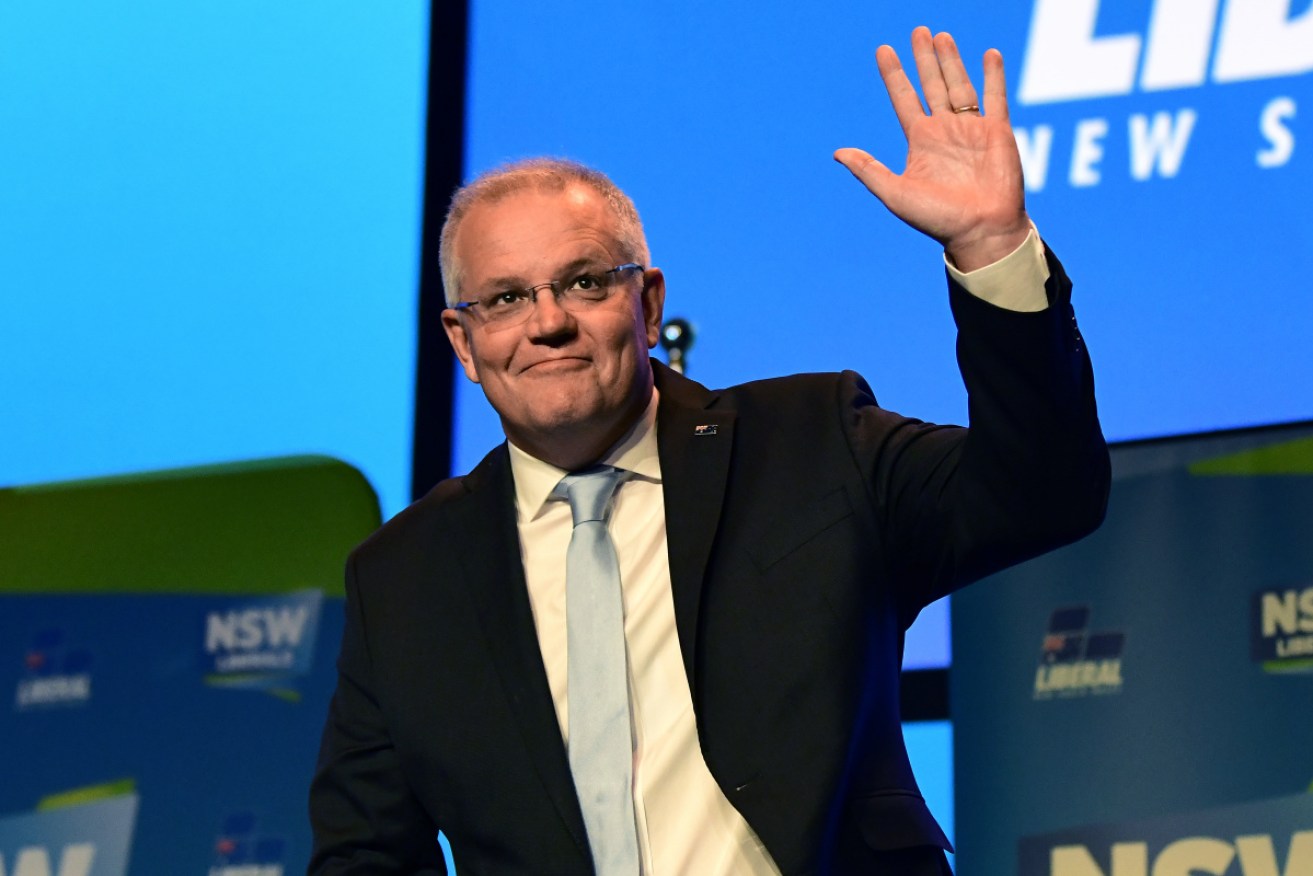Australia nears its first balanced budget in a decade. But is it what the economy needs?

Delivering a surplus was one of Prime Minister Scott Morrison's key election promises. Photo: AAP
After 10 budget deficits in a row, Australia is basically back in the black.
Despite April’s 2019-20 Budget signalling a $4.2 billion deficit for 2018-19 financial year, the Government has announced a $690 million deficit.
In a half-a-trillion-dollar budget, that is little more than a rounding error. Relative to the size of Australia’s economy it rounds to 0.0 per cent, making it essentially a balanced budget.
The result has prompted the Treasurer and Finance Minister to reconfirm the forecast return to surplus in the current financial year.
But economists are urging the Government to let go of its surplus obsession and to instead consider the needs of an increasingly struggling economy.
Former Liberal leader, and economist, John Hewson has met the announcement with some cynicism.
“They’re playing a very short-term game, they’re playing very much a marketing game,” he said.
Mr Hewson said the achievement of a balanced budget will not mean much to Australian families struggling to balance their own budgets.
“It resonates for a while, but it doesn’t resonate with too many people struggling with the cost of living,” he argued.
It doesn’t resonate with the GDP numbers, and the fact that the economy’s pretty flat, that wages are not likely to go up in the foreseeable future.”
Australia’s most recent national accounts, released earlier this month, showed the equal lowest annual economic growth rate in almost two decades – at 1.4 per cent GDP growth was as low as during the global financial crisis.
Global accounting firm PricewaterhouseCoopers is also critical of what it describes as the Government’s “political goal” of a surplus.
The firm’s chief economist Jeremy Thorpe told the ABC the surplus should not be seen as an end in and of itself.
“Ultimately this is about the welfare of the economy, and the welfare of households and incomes and people’s quality of life,” he said.
“That’s what we should be measuring, a surplus is just a means to an end.”

Treasurer Josh Frydenberg and Finance Minister Mathias Cormann predicted a deficit as recently as April. Photo: ABC News: Marco Catalano
Sound management and a ‘degree of luck’
At the recent election, the Government campaigned hard on being a good manager of the country’s finances, and Treasury’s Final Budget Outcome adds some credence to those claims.
The original 2018-19 Budget forecast a deficit of $14.5 billion. This improved to $4.2 billion in the pre-election 2019-20 Budget, thanks in part to a surge in individual and company tax receipts.
PwC’s Jeremy Thorpe argues the Government has had a “degree of luck” with the corporate sector putting the nation’s budget back in the black, with a big contribution from surging iron ore prices.
“We estimate that the mining sector’s paying about $30 billion of taxes annually to the Commonwealth Government,” he said.
“Clearly that’s a large revenue source that the Government doesn’t control.
“Nothing that the domestic economy’s driving, but we’ve been the beneficiary of the [growing] Chinese economy.”
RBA and Government ‘working against each other’
So, what to do with this extra cash?
Major investment house JP Morgan is forecasting a 40 per cent chance the global economy will slip into recession in the next 12 months.
China’s economy is expected to continue to slow as the US-China trade war takes its toll on the world’s second biggest economy.
With the addition of domestic economic problems, including low wage growth and weak consumer spending, economists say the Government needs to help, rather than hinder, the Reserve Bank’s attempts to sandbag the economy from a potential financial storm.
“We’ve been moving from a deficit towards a surplus, so in that sense the fiscal position has been contractionary, and is of course working against monetary policy, which is becoming increasingly expansionary,” EY chief economist Jo Masters told the ABC.
“So those two policy levers have been working against each other.”
John Hewson agrees with accounting firm EY, describing the Government’s economic policy messaging as “confusing”.

Treasurer Josh Frydenberg and RBA Governor Philip Lowe tried to a show a united front in July. Photo: AAP
“The Government has been sending confusing messages and the Reserve Bank, atypically, has been speaking out very strongly about the Government needing to do more to stimulate the economy,” he said.
PwC’s Jeremy Thorpe wants to see the Government’s new-found cash spent on additional infrastructure projects – over and above those already slated over the forward estimates.
“We have a low-productivity economy at the moment, and that’s limiting wages growth, so that’s bad for everyone,” he argued.
If we can invest smartly into infrastructure, that has long term benefits both for corporates and for households.”
Mr Hewson said he expects the Government to turn its attention to additional fiscal stimulus if, and when, Australia faces its next major economic shock.
“At some point they will have to change their rhetoric, but it’s more likely they’ll wait until something of a crisis hits us, from offshore in particular, which they can then say ‘ah well that’s the reason we have to change’, rather than initiating it themselves,” he predicted.
–ABC








